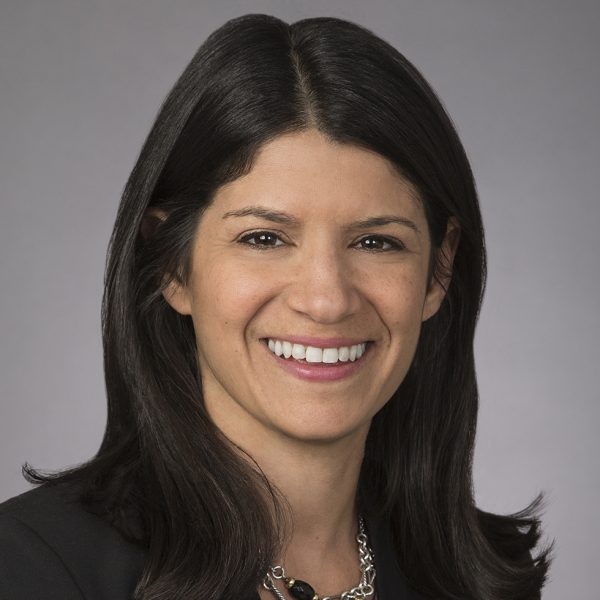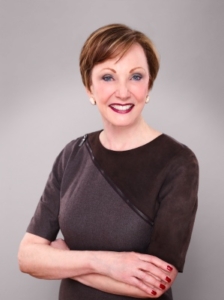 You have to have trust in your intuition; it can be easy to listen to all the buzz around you, but paying attention to your inner self will always lead you down the correct path, says Diane Ramirez.
You have to have trust in your intuition; it can be easy to listen to all the buzz around you, but paying attention to your inner self will always lead you down the correct path, says Diane Ramirez.
As chairman and CEO of real estate firm Halstead, she knows that it takes an entrepreneurial bent to be successful in the business. “You’re not going to sit back and have someone guide you—you have to own who you are going to be, and it can be easy to forget that,” she says. But those who understand the business side of real estate will find themselves successful.
The Ideal Time for Each Step of Her Career
Ramirez came to this success via a path and timeline different from most women. While she started her career in marketing and advertising, she had two children quickly, and her focus turned to being a wife and mom for her young family. As she notes, most women tend to delay a family, which means they are often at the pinnacle of their careers and have to downshift, but hers was the opposite.
That’s because it wasn’t long until Ramirez realized she wanted and needed the passion that a career provided, and she found she was attracted to the entrepreneurial pace of real estate.
When her kids were in elementary school, she started as an agent, and as they got older and needed less hands-on attention, she was able to devote increasingly more time to building her career, eventually opening her own firm.
She started with a vision of three offices, and since then it has continued to grow to 36 offices in three states and more than 1,400 agents. But while the growth has been extraordinary, the professional achievement Ramirez is most proud of is that they are known for their culture, which while not easy to maintain throughout the growth, has been crucial to their success.
A Place To Belong
The firm underwent a rebranding last year, and she has been delighted to see that both her customer base, and, more importantly, the agents, have embraced it. One of their signature perks is access to a tailor who helps them procure a high-quality professional, yet affordable, wardrobe. The company included the new logo as the lining in the overcoats it designed and Ramirez has been happy to see that the agents are so proud of it that they’ll give a peek to a fellow agent, much like a secret handshake. The rebranding also included regional colors, which have also been well-received—in fact, she said that it has been gratifying to see each region’s agents believe they have the best colors.
Another important upgrade they’ve completed recently is a substantial technology initiative that has made it easier for agents to be more productive and keep up with advances that are important to their clients.
Ramirez finds real estate to be a fantastic field for women because of the flexibility it offers, but she also underscores that they need to realize that it can also be a 24/7 business, which is why it’s crucial to have support at home.
As she sees more women enter the industry, she encourages them to embrace fellow colleagues and be willing to share knowledge, with men and women alike. “The more we share, the more it will come back to you,” Ramirez says, adding that it’s important to remember that you’re not necessarily competing against each other for the same property, but rather competing to succeed in the business.
She finds that women frequently say they are excited to work for a woman. “It makes me really proud that they are looking for the support of someone who’s been there,” Ramirez says. And, she adds, not by design as her only goal was to seek the best talent, but her executive staff is half women and half men.
Family has always been important to Ramirez, and she makes certain that whatever part of her day she’s in, she is 100 percent present. “They know they can call me if they need something, but work is work, and then family time is family time,” she says. “That has always served me well because you can’t be both places at once or both will suffer. You have to find the ‘soft barrier’ between the two to make sure that everyone is taken care of at the right time.”
An avid traveler, she goes on trips with her family as much as she can and just took her children and grandchildren ages 11 to 21 on a safari that she says was “pure magic.” And while that was a marquee adventure, she makes the time to do frequent relaxing vacations so they can spend ample quality time together.


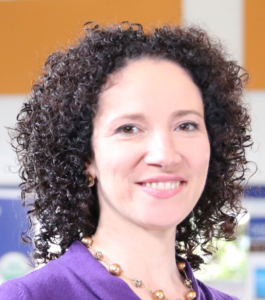 When one of Noha Waibsnaider’s loved ones passed away, she was overwhelmed by grief—which made the logistical hurdles of coordination and communication that much more challenging during an already difficult time.
When one of Noha Waibsnaider’s loved ones passed away, she was overwhelmed by grief—which made the logistical hurdles of coordination and communication that much more challenging during an already difficult time.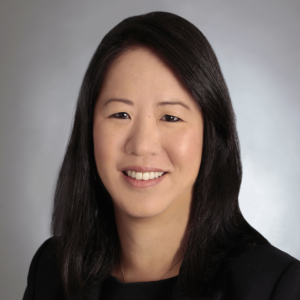
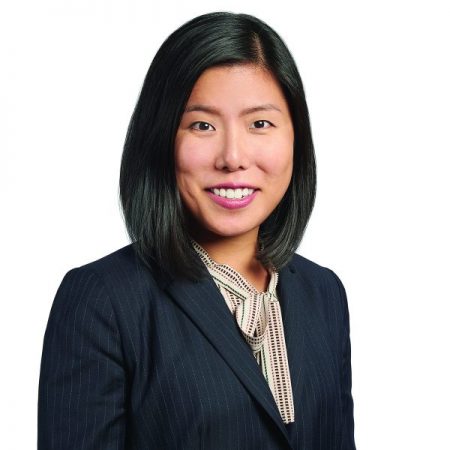
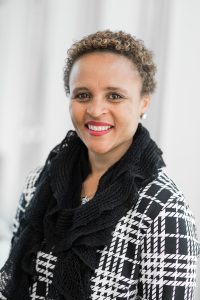 Looking back over her career, PwC’s Busisiwe Mathe says she wishes she had been as comfortable in her own skin when she first started as she is now; however, she understands that acquiring that confidence is all part of growing.
Looking back over her career, PwC’s Busisiwe Mathe says she wishes she had been as comfortable in her own skin when she first started as she is now; however, she understands that acquiring that confidence is all part of growing.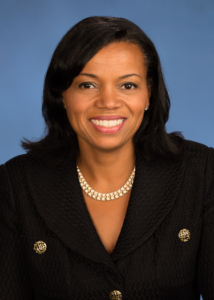 “Be Bold and Take Risks to Be an Agent of Change”
“Be Bold and Take Risks to Be an Agent of Change”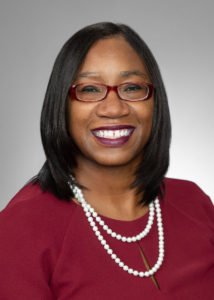 “Don’t stress out” over your career, Kenya Scott Woodruff tells women who are entering the workforce.
“Don’t stress out” over your career, Kenya Scott Woodruff tells women who are entering the workforce.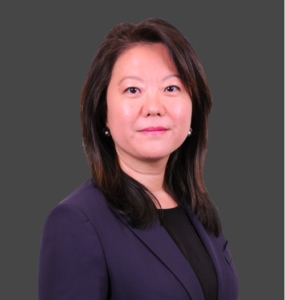 “When it comes to diversity and inclusion, we have to continually find many ways to talk about it openly, even if this involves having difficult conversations,because although it may feel challenging, the end result will be worth it for everyone“ states Sandra Bang, Chief Diversity and Talent Strategy Officer at Shearman & Sterling LLP.
“When it comes to diversity and inclusion, we have to continually find many ways to talk about it openly, even if this involves having difficult conversations,because although it may feel challenging, the end result will be worth it for everyone“ states Sandra Bang, Chief Diversity and Talent Strategy Officer at Shearman & Sterling LLP.